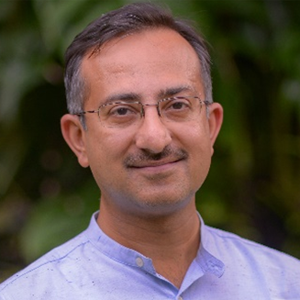
Mangrove ecosystems play an important role in coastal protection, sustainable livelihoods and biodiversity conservation. These unique ecosystems are vulnerable to climate change and it negatively impacts vulnerable coastal communities. Understanding the interconnectedness of these unique socioecological systems would aid in management and protection for sustaining biodiversity that depend on these ecosystems.
A greater understanding of mangrove ecosystem services, carbon sequestration benefits, biodiversity conservation and enhanced resilience is essential for India’s coastal sustainability, including the well-being of vulnerable communities. Equally important is the availability of sound scientific information for planning and implementing successful mangrove restoration. Adopting scientific methodologies and monitoring techniques using advanced technical tools can inform and improve management of mangrove ecosystems. Setting up regular mangrove monitoring efforts will allow relevant stakeholders and managers to keep a check on the overall ecological health and to take appropriate action when problems arise.

The vision for this India Mangrove Conclave (IMC) is to make mangrove science, research and best practices readily available and accessible to managers and other stakeholders to ensure sustainability and resilience of these ecosystems for the benefit of society.
This conference will convene voices and perspectives from different stakeholders connected to India’s mangrove ecosystems. It will provide a platform for exchange of knowledge in discussing challenges and drivers of mangrove loss in India and best practices on mangrove conservation; examining how scientific research can be applied to improve mangrove ecosystem functions and enhance benefits for local communities. By highlighting mangrove research in India, this conference aims to catalyse multi-institutional collaboration to enhance mangrove research and promote practices leading to improved coastal ecosystem sustainability. This gathering will foster linkages between India’s scientific research community, practitioners, managers and coastal communities, as well as coastal industry and tourism sectors, including government and non-government entities. The conference will strive to develop an outline for a broad roadmap for integrated and holistic sustainability of Indian mangrove ecosystems based on scientific evidence and best practices.
Goal and objectives
The conference goal is to convene researchers, practitioners and stakeholders from the country’s mangrove ecosystems for a knowledge exchange to identify opportunities in improving these ecosystems sustainably. Sessions will broadly cover topics around livelihoods, biodiversity conservation, climate mitigation, vulnerability and adaptation, and ecological restoration in the context of mangroves. The objectives of these sessions will be to:
- Develop an outline to produce a practical guide that empowers mangrove managers to utilize the latest scientific research and best practices for enhancing coastal resilience and improved management;
- Facilitate discussions and knowledge exchange to encourage novel strategic research collaborations on mangroves as nature-based climate solutions;
- Reach a consensus to develop/constitute a National Mangrove Centre to act as a repository of available knowledge, scientific and practical understanding of the country’s various mangrove ecosystems, and for providing needed advice/guidance to tackle issues related to better management of mangroves across the country.
Conference themes

Mangrove ecosystems: Scientific research and best practices
- Mangrove research advances and gaps in the Indian setting
- Mangrove extent change and risks to existing mangroves including efforts to address it
- Innovative in-situ and remote sensing monitoring for decision support
- Traditional knowledge and community-based conservation

Mangroves for adaptation, biodiversity and human well-being
- Biodiversity and ecosystem services of mangroves
- Sustainable coastal management and ecosystem-based adaptation
- Nature-based solutions for coastal resilience
- Mangrove restoration and potential for climate mitigation and adaptation
- Leveraging institutional setups for collaborative and holistic management
- Information and knowledge management for greater effectiveness and impacts
Agenda
To be announced soon.
Technical Organizing Committee

Tune Usha

Punyasloke Bhadury

Shanti Priya Pandey

Ragavan P

Rani Varghese

Anirban Guha

Sahadev Sharma



























